Are you a curious food lover who’d like to stretch your gourmet muscles on your next trip to France? Do you have a naturally adventurous palate and a desire to understand local culture through hands-on experiences, learning through encounters with experts? If so, you shouldn’t hesitate to try your hand at a French cooking class while visiting the country– whether privately or with fellow classmates. France’s world-famous cuisine is so renowned that it’s been named a UNESCO World Heritage treasure– and for very good reason. Not only does it count more Michelin stars and award-winning chefs than pretty much any other country on the planet: its exquisite culinary traditions are carried out every day by excellent bakers, patissiers, traiteurs and other artisans. Their humble, devoted work guarantees that the secrets of French cuisine continue: and they have much to teach those who wish to share in the treasures. Whether you want to learn how to bake a divinely crusty baguette or to make an omelette whose simplicity defines its perfection, here are our top 5 reasons why you should take the (gourmet) plunge.
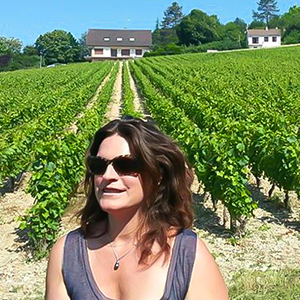
Founder
You don’t have to be an aspiring Julia Child to take French cooking classes– just a desire to stretch your culinary muscles. Here’s why we think you should take the plunge on your next trip to France.

Crusty and golden on the exterior, and chewy but soft on the interior: the humble French baguette may appear simple, but there’s a good reason why it’s relatively hard to find them baked to perfection outside of France. Boulangers (bread artisans/bakers) follow careful and extremely rigorous protocols for achieving the sort of loaves that sing on your palate and perfectly accompany other dishes, whether they’re preparing baguettes, larger country loaves, flatbreads or dark ryes. At the same time, some of the best boulangers add inventive new notes to traditional recipes, pushing the envelope to win accolades in annual breadmaking competitions in France.
By taking an intensive bread-making workshop or arranging for private lessons with a master boulanger, you will learn firsthand some of the elusive secrets of the trade–such as the difference between the “baguette normale” (ordinary baguette) and “baguette tradition”: (traditional baguette: the latter is generally considered to be of better quality and made with a maximum of five high-quality ingredients, leavened in a particular fashion). You’ll learn why ordinary ovens won’t produce the same results as those found in your typical French boulangerie, and why the soft, doughy crusts you often see in the “French” bread sold in North America is considered incorrect.
Taking a breadmaking class or workshop should allow you to try your hand at different sorts of traditional breads. These might include pain de campagne, a large, hearty loaf perfect for accompanying stews and meat dishes; pain aux olives, laced with flavorful olives and baked in a softer consistency; pain de seigle, a rich rye bread whose unique flavour is different from the sorts found in Germany, the UK and the US, or pain aux noix, a loaf or round with fragrant and crunchy walnuts.
While there’s no guarantee that you’ll be able to exactly replicate these treasured techniques once back home and using your own oven, you’ll still come out of your class or workshop with a new set of skills you’ll no doubt be proud to show off. You’ll take away a slice of of French breadmaking– pun intended– and all of the passion and patience that keeps it alive, even in our fast-paced industrial era.
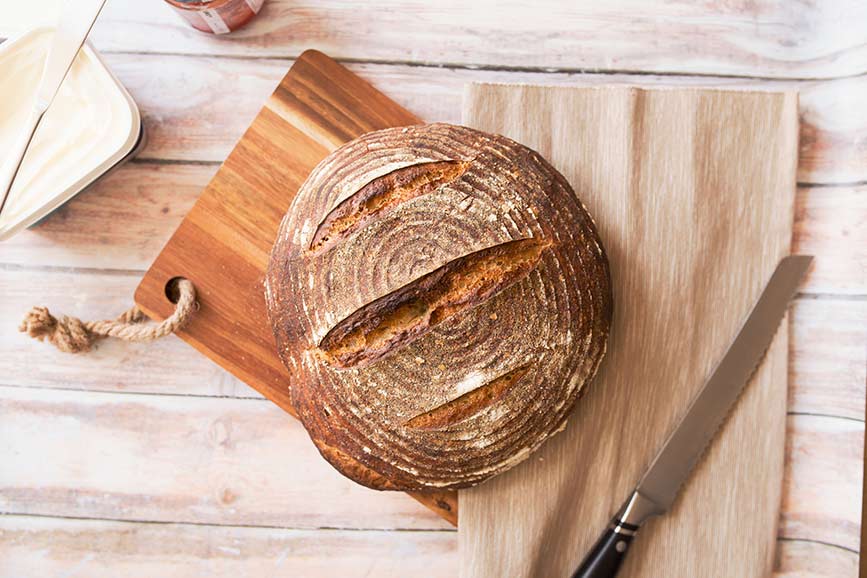
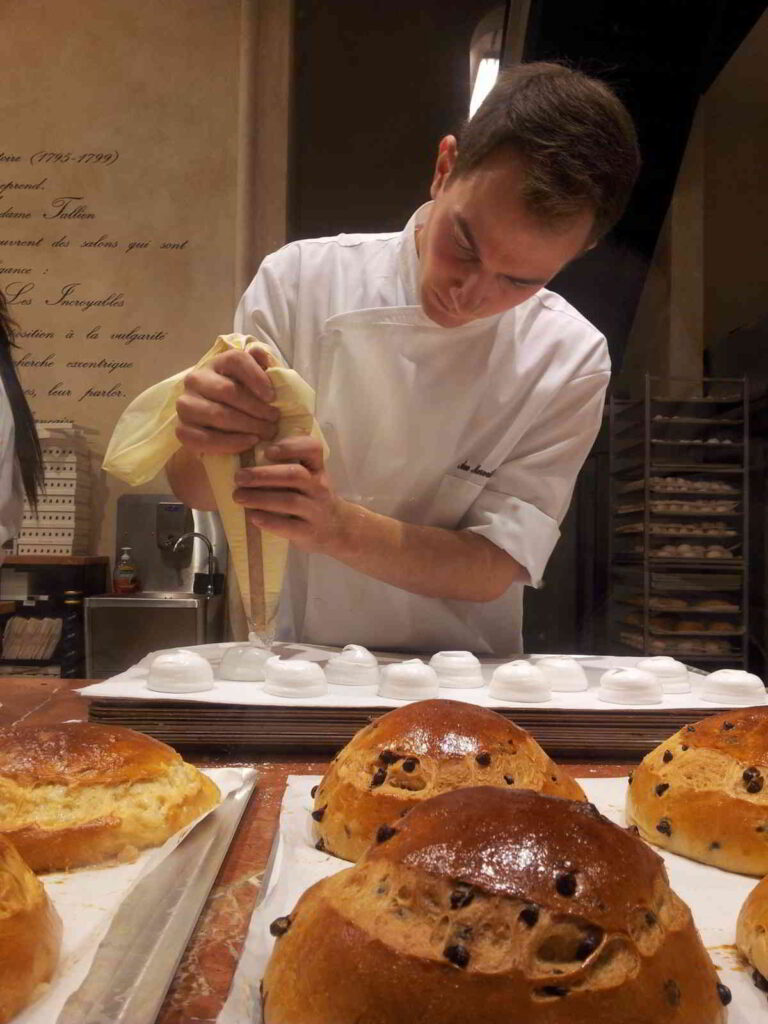
In France, there’s no true direct translation for the English word “baker”, because the Gallic tongue is more precise: you have boulangers (bread makers) and patissiers (pastry chefs/makers). And while it’s true that most bakeries in France are both boulangeries and patisseries, inquire about local reputations and most will be known to be best at either one or the other. It’s rare to find a French pastry chef who’s equally renowned for his or her bread as for their pastries, and vice-versa. The reason for this? The savoir-faire and artisanal skill required are quite different for the two traditions.
For this reason, we recommend that if you’re interested in learning about both breadmaking and patisserie, you take two separate classes– or two distinct sessions offered by the same school or private instructor. Pastries are a marvelous world apart, and are deserving of at least a half-day or full day of instruction from a master pastry chef.
By taking a class or private tutorial, you’ll learn some of the most delicate techniques that form of the foundations of excellent pastries and viennoiseries (croissants, pain au chocolat, and other bread-like pastries fall under the latter category). For example, the precise temperature at which butter is to be incorporated into the flour to achieve an ideal croissant (it will be at once flaky, moist, slightly chewy but not tough, and easy to break apart: a bit like tender crab.) You’ll learn why using margarine instead of high-quality butter in croissants and other delicacies is a big no-no– and why to avoid the “croissant ordinaire” (ordinary croissant) sold by many bakeries– you should always opt for the “croissant pur beurre” (butter croissant, not actually shaped like a crescent, oddly) to ensure the highest quality.
In addition to learning how to produce everyday bakery staples such as the above– the best pastry chefs must master these basics– you’ll learn how to make delightfully light, airy chou pastry, which is the basic component and building block for delicious items including eclairs, religieuses (eclair-like pastries stacked and piped with cream around their “collars”, so that they resemble nuns), and even croqembouches, elaborately stacked choux mortared together with caramelised sugar, and often used as wedding cakes in France.
Tarts and mini-tarts (tartelettes) are another category you might begin to master during your classes: made with rich, buttery crusts and filled with lemon custard, fresh fruit, chocolate or almond paste, these brighten any patissier’s shop window. Achieving the perfect crust is quite a coup: work the pastry crust too long or add the butter at the wrong temperature, and you’ll get a tough, overly hard crust. Undercook it and you’ll yield what the British enjoy calling a “soggy bottom”. As with everything in French cooking, this is as much a precise science as it is an art form– and you’ll learn how to balance precision and inspiration during your pastry workshop or private class.
Interested in chocolate making? France counts numerous world-class chocolatiers, some of whom offer classes or even private instruction. If you want to learn how to make beautiful and melt-in-your-mouth truffles, ganaches, pralines and other specialties, we’ll arrange private tutorials with a master French chocolatier for you.
Rolling green vineyards, gastronomic dining and spectacular thermal bathsare among the breathtaking sights and luxurious amenities that await visitors to the Chateau Smith Haut Lafitte. This much-coveted luxury wine maker, whose elegant premises are situated in the Pessac-Léognan vintnering appellation only 20 minutes from central Bordeaux, produces both “grand cru classé” reds and whites that regularly rank among the region’s most outstanding wines. The recently renovated tasting rooms and wine-making facilities at the chateau make for a very pleasant afternoon of sampling and purchasing; the Chateau is well known for its harmonious architecture and eye-catching sculptures.
Meanwhile, gastronomy and superb possibilities for relaxation await with private dining at the Chateau and close access to the Caudalie “Vinotherapie” spa, located just across the road. What spells luxury more clearly than sampling world-class wine, then getting pampered with spa products specially formulated with grape extracts?
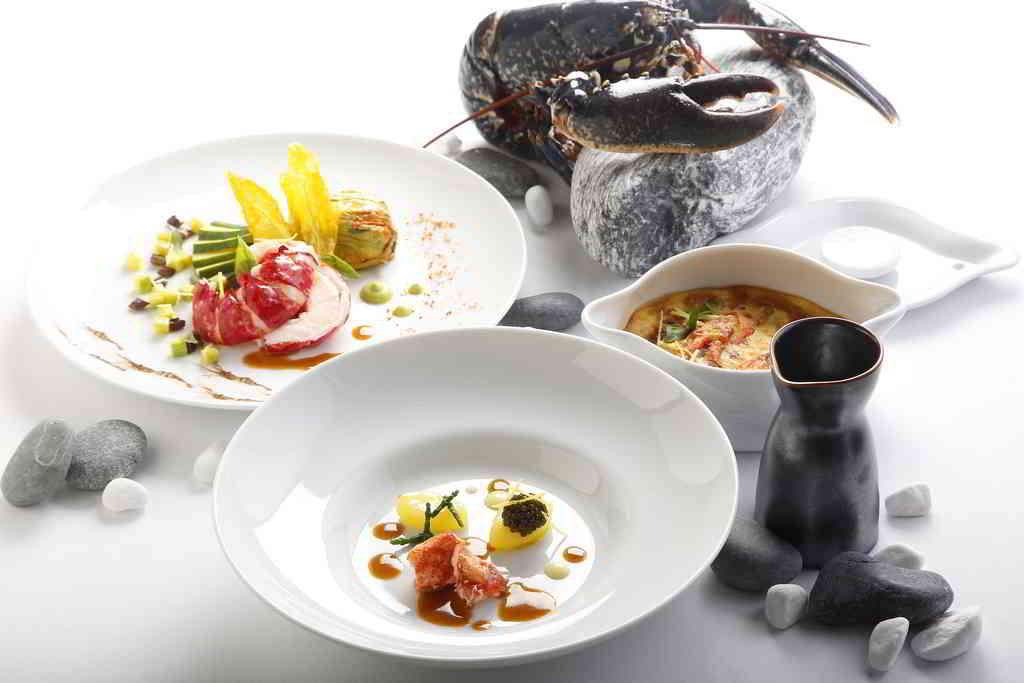
Another reason to make some time for a cooking or pastry class while visiting Paris, Provence, the Southwest or other marvellous luxury destinations in France? The fantastic opportunity to work and learn under the tutelage of master chefs and artisans. Sure, you might find that French expatriates in your home country offer Gallic cooking, pastry or bread-making workshops that are equally superb– but there’s an enormous wealth of choice when travelling in France, as we outlined above. You might have the once-in-a-lifetime chance to learn the subtleties and treasured techniques of la cuisine francaise from one of the prestigious chefs at Le Cordon Bleu in Paris, or at the Alain Ducasse school of cooking.
While some prefer the camaraderie of learning with fellow classmates, others will find that private classes and workshops are ideal. If it’s a private tour you’re after, we’ll help you learn from some of the best chefs and artisans in the country– many with Michelin-starred restaurants. You might learn how to whip up marvellously light and airy profiteroles, perfectly tart and creamy tarte aux citron, croquembouche or sumptuously rich ganache chocolates under the private instruction of the master patissiers and artisinal chocolate makers that we work with closely, offering you extra attention so that you learn at a faster (yet more relaxed) pace. You might plunge into the secrets of Normandy cuisine with a local who will privately instruct you in some of the region’s treasured recipes and show you how to make world-class cider, or learn the hallowed traditions of cooking with shellfish and fresh seafood by a local chef in Brittany.
If you’re interested in artisanal practices such as cheesemaking or charcuterie, workshops around these traditions are also a possibility. Just let us know more about your gourmet ambitions, and we’ll arrange workshops or classes that correspond perfectly to your dreams.
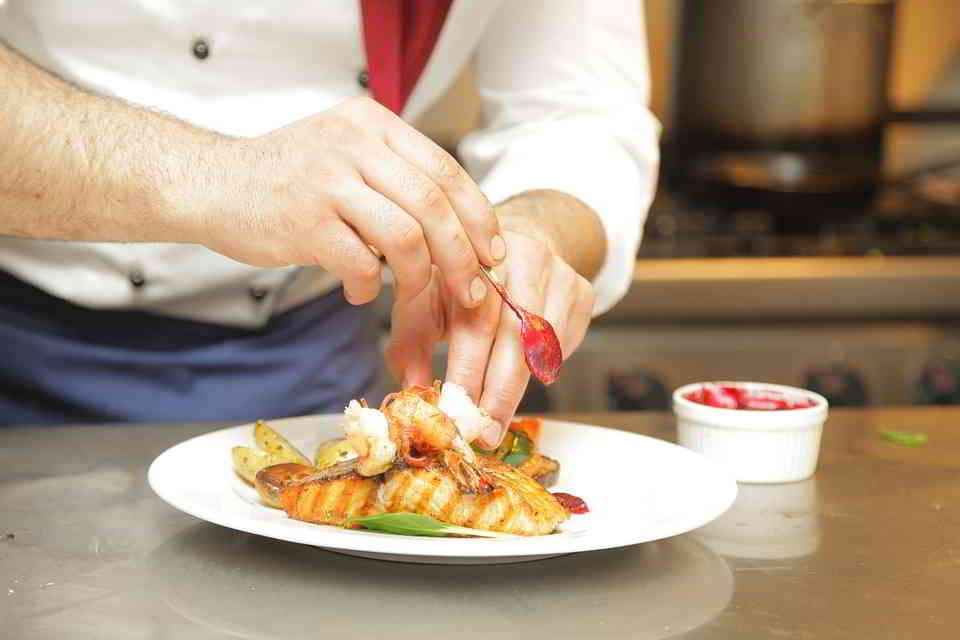
Last, but certainly not least: by embarking on cooking classes in France, you’ll take home a set of gourmet techniques and skills that will last a lifetime. Travel isn’t just about seeing beautiful sights and observing another culture from a detached distance: it’s so much more rewarding when you let the experience change you; when you absorb a part of the host culture and making it a lasting part of how you see the world. By learning how to make elegant, impeccable chocolate eclairs, or how to prepare a roast chicken with tarragon as delicious as it is simple, the hundreds-year old secrets and traditions of French cuisine will become a part of you. Perhaps you’ll add some of these recipes into your repertoire at home, or share your newly learned bread-making techniques with a child or grandchild.
There’s a good reason why food and love seem to go hand in hand in many people’s minds, after all: preparing a delicious meal for friends and family is a way of sharing in the joy life– and in this case, the joy of your travels.
Did you like the content? Share it now!
Have we made your curious palate even more curious? If so, get in touch with us so we can put together an entirely bespoke gourmet adventure of France for you. This might include private cooking classes with a master chef, a pastry-making workshop, or French food tours in Paris, Provence or other iconic gastronomic regions. We can’t wait to help you awaken your taste buds, and stretch those gourmet muscles even further…
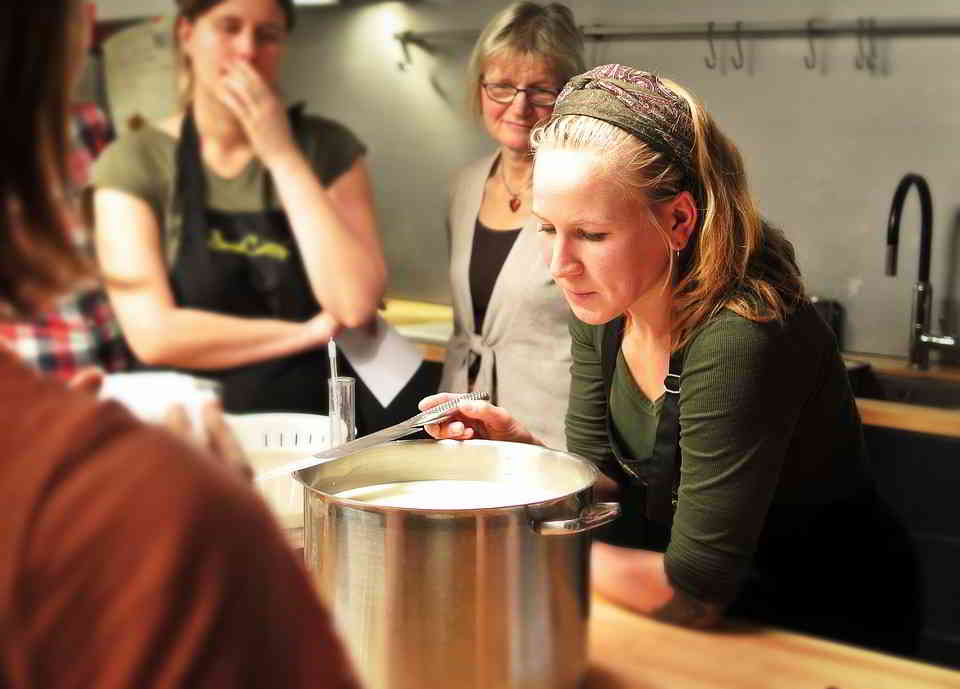
Did you like the content? Share it now!
To provide the best experiences, we use technologies like cookies to store and/or access device information. Consenting to these technologies allows us to process data such as browsing behavior or unique IDs on this site. Not consenting or withdrawing consent may negatively affect certain features and functions.
